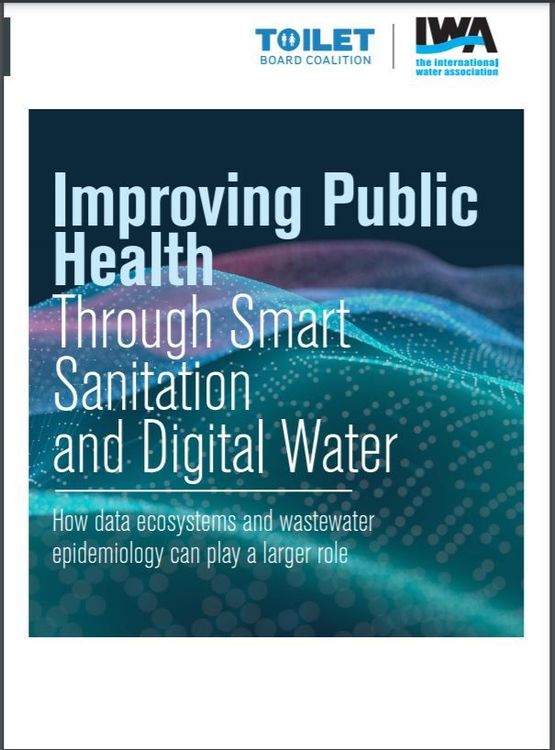Improving Public Health Through Smart Sanitation and Digital Water – White Paper

digitalisation health sdgs society
Published on Nov 18, 2020
The International Water Association (IWA) and Toilet Board Coalition (TBC) have come together to present a fresh vision of a public health ecosystem that extracts new value from wastewater.
The paper echoes the following key messages:
- Digitising sanitation and wastewater systems can save lives and prevent the spread of disease. Through the global response to COVID-19, we have seen a new social contract emerging around health and hygiene. While governments and health systems scrambled to understand the rate of infection in their populations, sanitation and wastewater-based epidemiology has emerged as one of the earliest and most accurate reflections of a city’s infection rate.
- Technology is emerging, specifically biosensors, developed for a variety of uses in sanitation infrastructure ranging from gathering data about specific health outcomes, such as quantifying drug consumption or screening for infectious diseases, to monitoring individual health-related behaviors, such as tracking latrine/toilet usage. When diagnostic data can be combined with toilet usage and environmental data, we start to garner new and deeper insights into the health and behaviour of communities.
- The paper advocates for collaborative ecosystems where sanitation and water operators work with municipalities and governments to map their systems and usage data, thus creating a new value for the existing system and shifting disease outbreak responses from reactive to preventative.
On a private sector level, in light of the COVID-19 pandemic, WHO has recommended that workplace preventative measures are established to reduce risk. - Already we see temperature checks, frequent testing, and other measures being rolled out across operations. Smart sanitation systems are an opportunity for businesses to ensure a safe and healthy work environment for their employees.
- The paper highlights the importance of an improved health–water–sanitation nexus for early detection and disease prevention in relation to viruses, presenting current applications and case studies using digital technologies, as well as highlighting challenges and possible solutions. To accelerate the pace of innovation, the paper calls upon the governments, investors, sanitation and water operators and data experts for their
collaboration to build this new data infrastructure and rethink of ways to build back better, stronger and more resilient.
